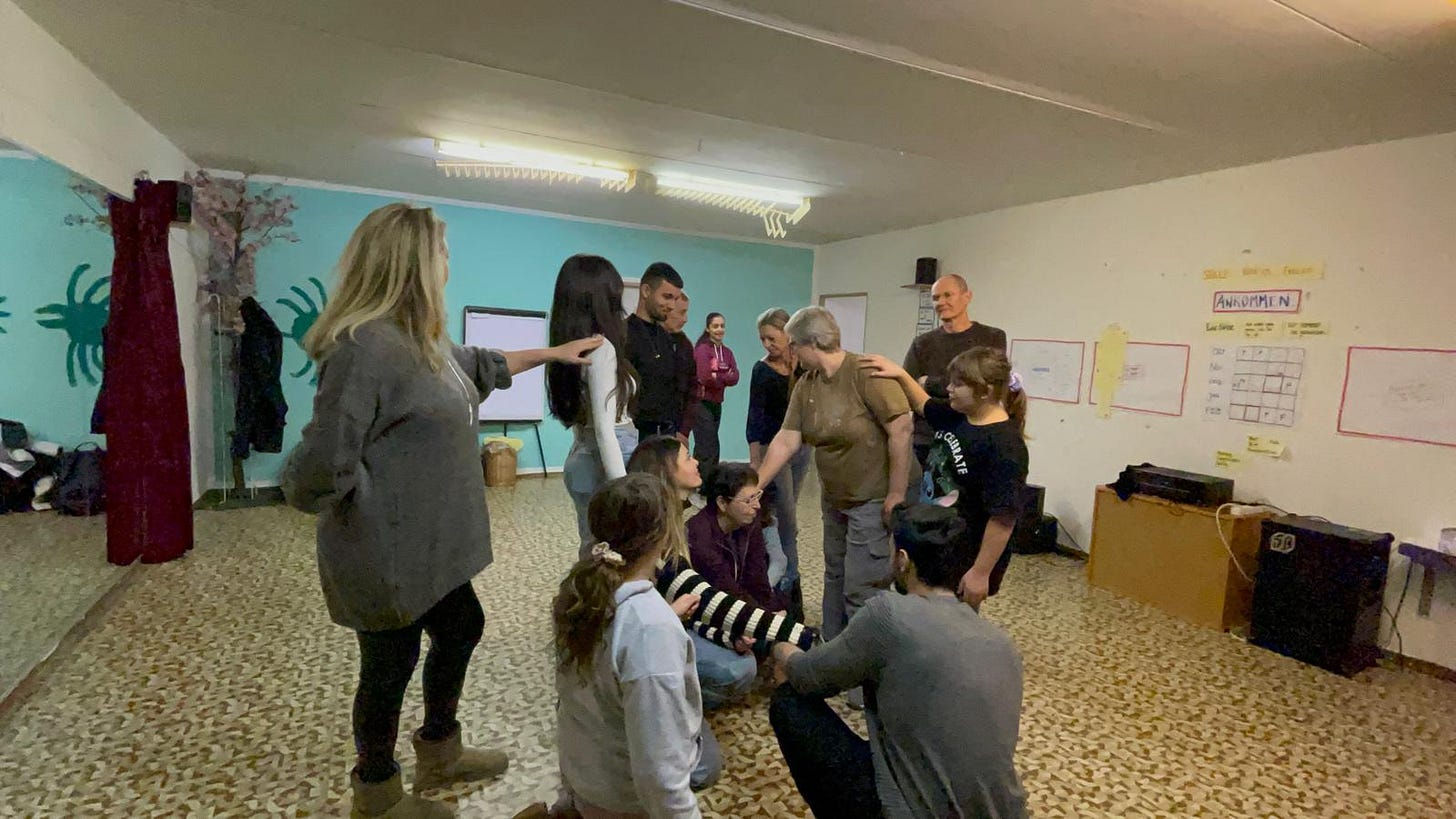Pilot insights: Thinking, convening, and doing differently 🚀
A deep dive into key insights and reflections from our pilot launch of CPI's Collective where we have been designing for emergence, experimentation, and collaboration
Over the past few months, we have focused on conducting an Experimentation and Sensemaking Phase with the pilot cohorts, Decolonising Development and Measuring Systems Change. We’ve discovered insights, moments of clarity, and plenty of questions that will guide our next steps. Below, we share reflections that might resonate with others designing for collaborative learning and emergence within systems.
We learned that:
1. The pilot was too short.
A three- to four-month journey is insufficient to reach our collective objective of supporting greater collaboration, experimentation, and learning within the global development sector. Building a community and experimenting with new approaches takes time. A quick pilot might surface interesting ideas, but meaningful collaboration and systems learning requires trust, momentum, and enough space for emergence to unfold.
In response, we’re launching Phase 2 of the pilot cohorts to continue with experimentation and committing to a year-long learning journey with our latest cohort, Innovation for Democracy in LATAM. It’s a shift toward honouring the depth of work needed to think and do differently together. We will also extend the pilot cohorts into Phase 2 to continue with the experimentation process. (Keep your eyes peeled for a post on the LATAM Cohort’s first couple of sessions!)
2. Pace and mindset matters.
Some cohort members were ready to experiment, even within a short pilot. In fact, one member concluded their first experiment on the 16th of December 2024 with immigrant and host country participants related to the learning inquiry - how to decolonize the body/self from imposed ideas and structures?
Others needed more time to build relationships, deepen their understanding of their learning inquiry, test assumptions, or explore various opportunities.
We plan on designing for varied paces across cohorts as we move into Phase 2. At the same time, we’re left wondering whether varied paces limit opportunities for collaboration and how we balance individual progress with collective goals.
We also found it equally important to help participants discover mindsets that support experimentation. For example, one remarked “how embodying curiosity and being fun while [taking] risk” helped to challenge their negative perceptions surrounding risk-taking, a necessary prerequisite for experimentation.
3. There’s room to leverage our (collective) network—intentionally.
This pilot showed us that CPI’s Collective has room to intentionally activate our extended network of friends and collaborators across the cohorts. Where can we be complimentary to the work and expertise of others committed to network facilitation and systems transformation?
Collaboration doesn’t just happen within the cohort—it can expand outward into ecosystems of support. How do we model mutuality in this process?
We are reimagining our convening model by partnering with organisations or initiatives that share our ambition to challenge current practices on emerging topics within defined geographies, across sectors or related to a specific development function. Through co-hosting, we aim to incorporate diverse perspectives into the design of the 2025 cohorts currently under development.
Additionally, based on participant feedback, we will explore how a geographically clustered cohort through the Innovation for Democracy in LATAM Cohort could support stronger collaboration and in-person connections.
4. Balancing collective intelligence building with technical content.
The pilot reinforced the significance of building collective intelligence—learning across individual, organisational, interpersonal, and systems scales. Yet, alongside this, we could have delivered more technical content to support members’ work tangibly.
What other technical resources or tools could we bring in? How do we curate these offerings while staying grounded in curiosity?
Again, our network can play a role. What expertise, passion, and skills do our critical friends and collaborators hold that could be shared across the cohorts?
5. From an Experimentation Fund to a Learning+ Fund.
Alongside our pilot cohorts, we developed a fund for experimentation. Yet, we began to overemphasise the financial resources available for experimentation, sometimes falling into the trap of chasing “new shiny solutions.” This is a familiar pattern to many in international development.
Even its name, The Experimentation Fund, felt misaligned to its true purpose.
We began developing a convoluted call for proposals, inadvertently slowing the momentum of cohort participants who were already eager to experiment. But our intent runs deeper. The fund is about exploring what’s possible when resourcing (financial and otherwise) is paired with a carefully curated convening space. It’s not just about experimentation—it’s about learning, collaboration, mutuality. How can we ensure this fund supports learning for the collective benefit?
In the coming weeks, we will introduce a streamlined version of a Learning+ Fund designed to simplify support for participant experiments ready to launch. From there, we will learn, adapt, and repeat.
6. Designing for emergence is uncomfortable.
Let’s be honest: designing for emergence requires checking your ego at the door. You can’t control the outcomes and it often feels like you’re walking a tightrope without a net.
But despite the discomfort, we still believe it’s worth it.
7. Our hypothesis still stands.
In an ecosystem that over-convenes and under-delivers on transformation, convening differently to exercise a new development model is needed. There is a demand to think, convene, and do differently.
The pilot affirmed our belief that this work—messy, emergent, and deeply human—matters. As we move into Phase 2 of the pilot journey, we’ll hold this learning close: pace, responsiveness, intentional resourcing, and the courage to design for emergence.
What’s resonating here, and where do you see possibilities for doing things differently?
We’d love to continue the conversation at our Open House on Thursday, 30th January, where participants will share their insights and experiments with a wider audience.






